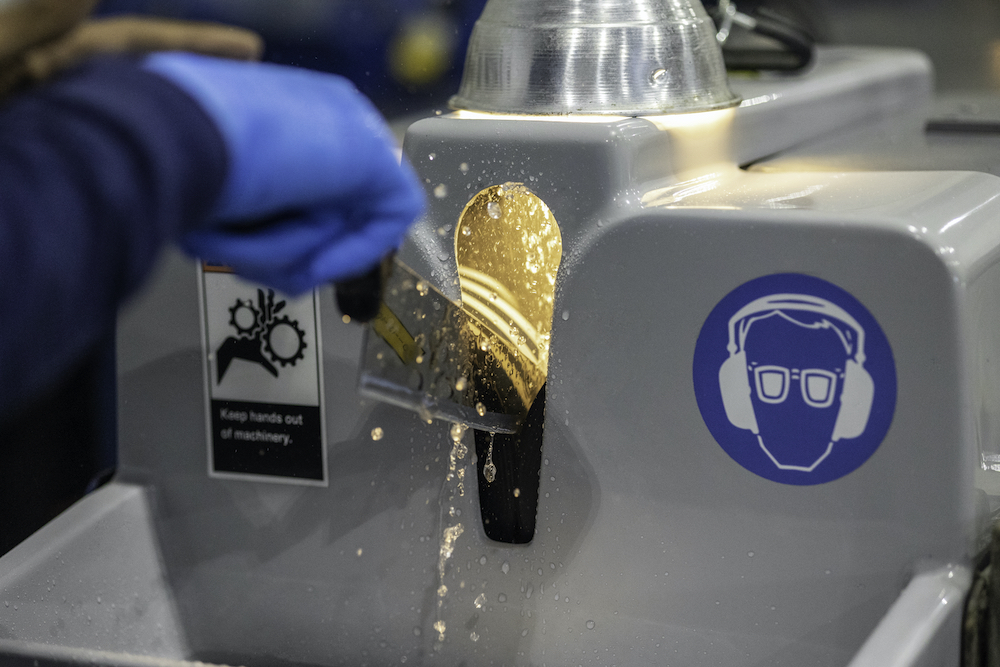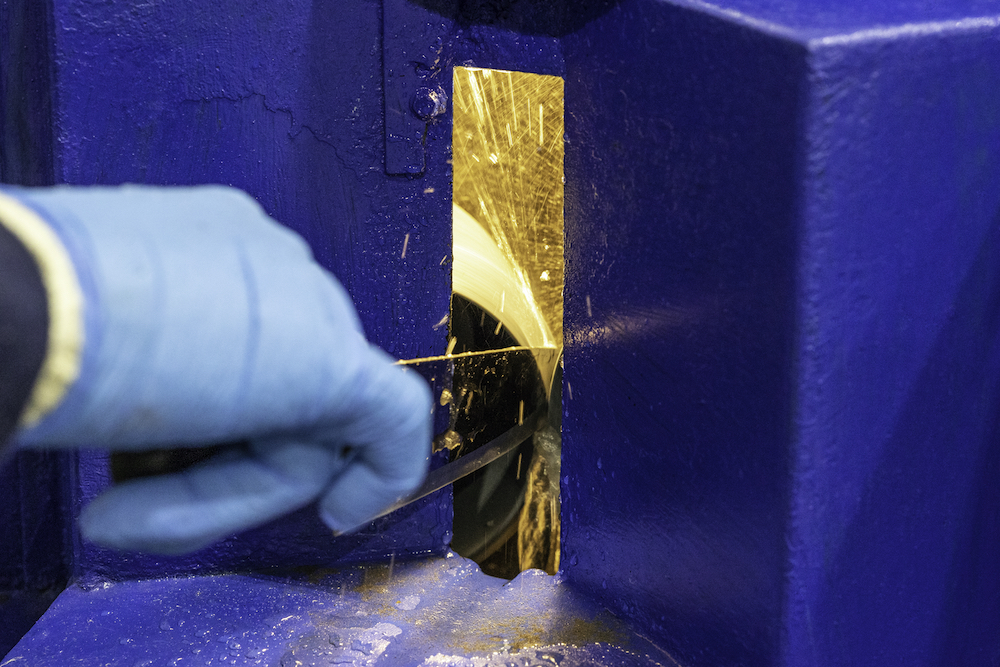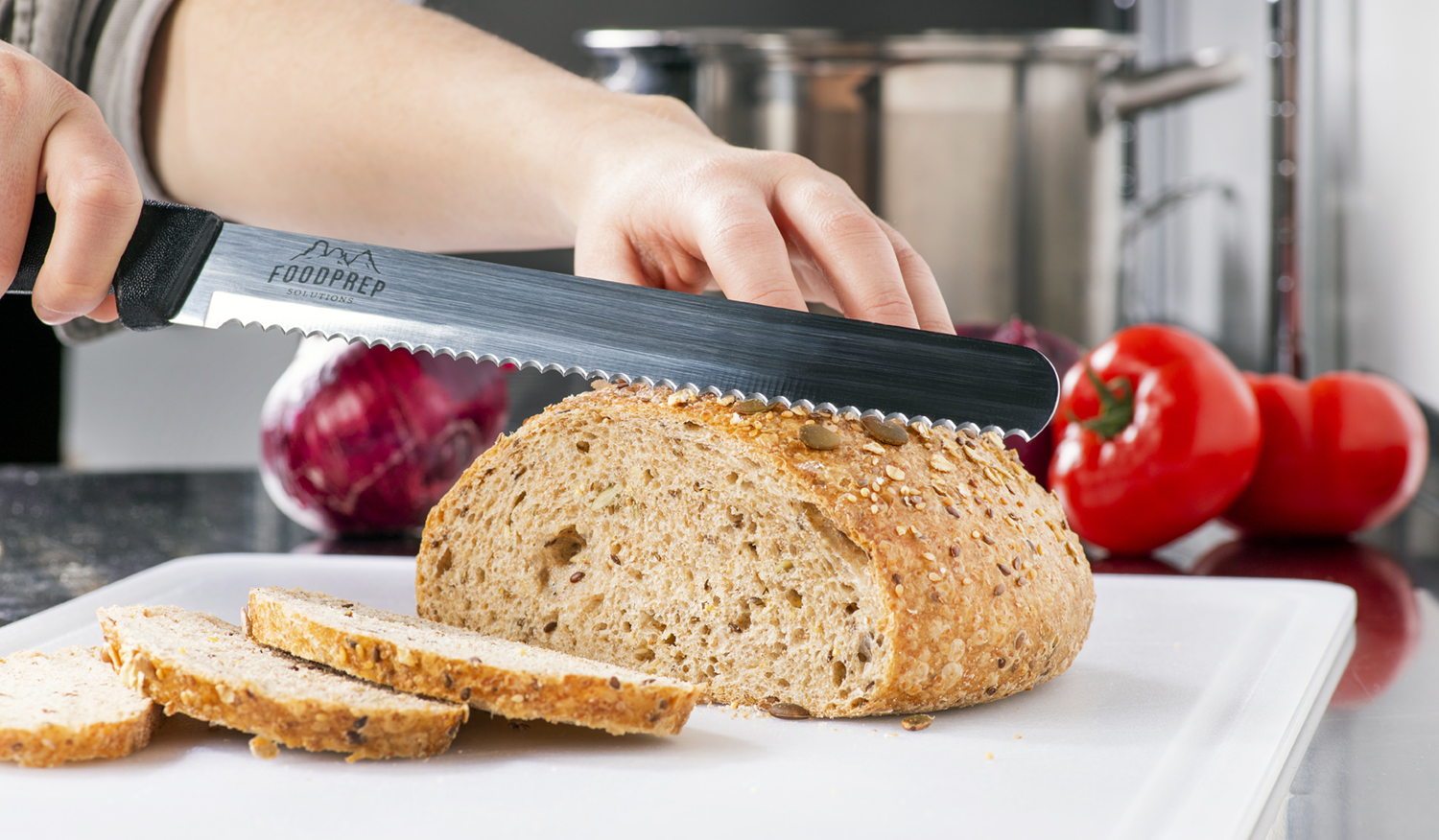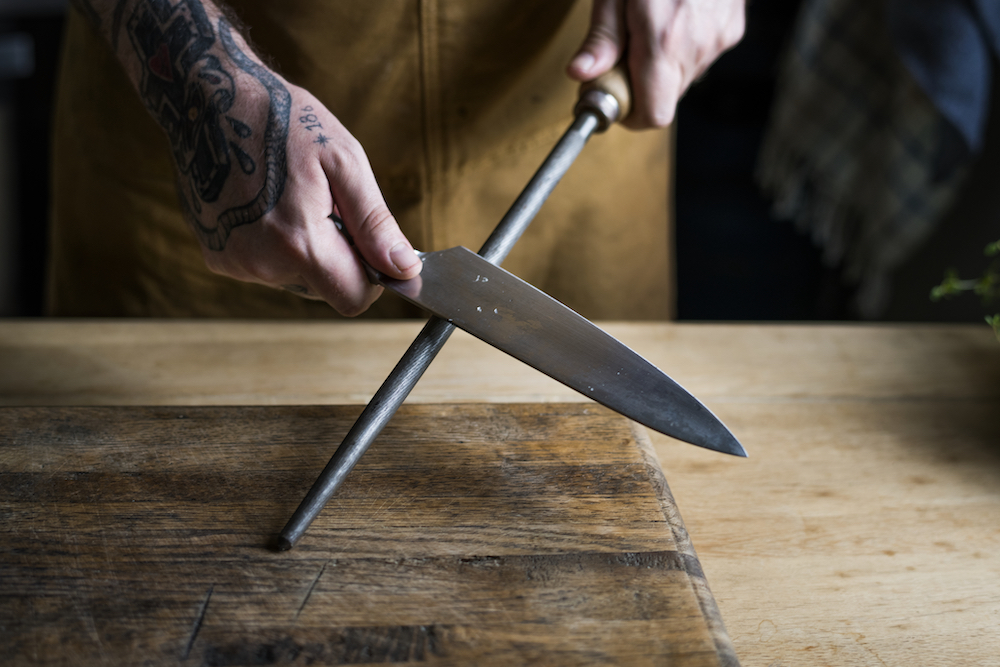Knife Safety and Preventing Injury
A meat slicer can also be referred to as a slicing machine or deli slicer. This electric machine is commonly found in butcher shops, grocery stores, delicatessens, and restaurant kitchens. They provide a precise, quick, an
Cuts, punctures, and scrapes are by far the most common injuries reported from restaurant kitchens. These injuries not only disrupt workflow, but they can also have bigger implications on staffing and productivity. The best proactive measure you can take against this is ensuring that your entire kitchen staff is properly trained in these aspects of knife handling and safety.
Always Use a Sharp Knife
Keeping your knife blades sharp is the easiest way to make them safer. Dull knives require more force to cut, increasing the odds of slippage and injury. Sharpening steels are useful for a quick fix, but regular professional knife sharpening is key for this safety element.
Use the Right Knife for the Task
There’s a huge variety of knife shapes, styles, and sizes. Each one is made for a specific type of cutting. To choose the best knife for the job at hand, consider the size of the blade against what you’re cutting and then match it to the best type of blade edge.
Know the Right Way to Cut with a Knife
Starting with protective, cut-resistant gloves is always a great place to start. Next, you’ll want to use a cutting board on a stable, flat surface to help facilitate a consistent cut. For gripping the knife, there are two basic ways – handle grip and blade grip. Select what is appropriate and provides the most control, then curl your fingertips inward on the hand holding the food and use your knuckles to guide the blade as you cut.
Stay Alert and Focused
Commercial kitchens are busy, loud places. As soon as you have a knife in your hands, all attention must stay focused on the knife and what you’re doing with it. A moment’s distraction, especially if you take your eyes off your cutting, can cause accident and injury.
Dress in Appropriate Gear
Besides cut-resistant or Kevlar gloves, there’s other attire to consider. Sturdy, close-toed shoes protect feet from dropped knives and well-fitting clothing means it’s less likely that something can shift and get in the way when you move. Just remember with cut-resistant gloves that they are only meant for cutting; they are not heat-resistant, so oven mitts are still needed for direct contact with hot cookware.
Proper Knife Care Tips for a Commercial Kitchen
When knives are not in use, there are some things to do for maintenance that will keep them in top form.
Carefully Clean Your Knives
Professional cutlery should only ever be cleaned by hand. Some knives will have specific instructions about cleaning, but in general, the only things you’ll need are hot water, mild soap and a soft sponge. Do not use abrasive cleaners or the dishwasher for cleaning knives. You’ll want to clean with hot water and a sponge when pulling a knife out of storage and after use on foods, clean with mild soap.
Dry Your Knives in Two Steps
You’ll want to dry your knife to help prevent rust and bacteria growth. Take a soft cloth and dry the handle of the knife first. This will give you a slip-free grip for drying the blade. To dry the blade next, fold the cloth around the blade, apply medium pressure, and swipe the cloth from the base of the blade by the handle up towards the tip while pointing the knife blade away from you.
Store Knives When Not in Use
Properly storing your knives not only helps to increase their longevity, but it also keeps them free from damage. How you store your knives and the access you need to them will help guide in the best choice for storage. Most commercial kitchens opt for a knife block, cabinet, or bar. The knife block requires counter space and the cabinet and bar are wall mounted.
Keep Your Knives Sharpened
Maintaining the sharpness of your knife blades helps your knives and your kitchen in so many ways. Every commercial kitchen should have a sharpening steel for daily honing, and can also opt for professional knife sharpening, like that provided by FoodPrep Solutions. We can help you get on a regular, easy-to-maintain schedule to keep cutlery performing like new.
Ensuring a kitchen staff is trained in knife safety and implementing a structure that puts into practice all of these elements will protect employees, reduce accidents and injury, and make sure you get a long life out of every knife.





